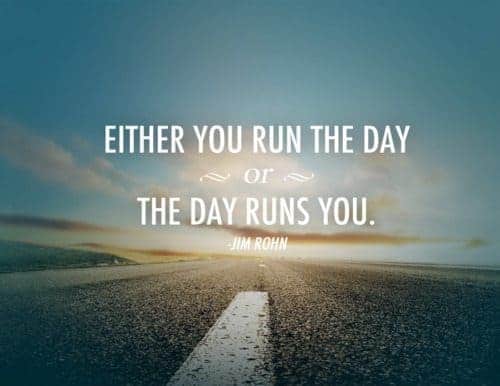5 Surprising Ways Trauma is Affecting You
If you experienced trauma as a child, you might wonder how it affects your life today.
Many of the things you think and feel are because of trauma.
The five areas are all affected by trauma: the brain, relationships, the body, memory, and identity.
Before I started therapy, I could not see how trauma affected my adult life, but now it is hard to deny and ignore it.
So if you are wondering how trauma affects you, then keep reading.
How trauma affects the brain
The amygdala, hippocampus, and prefrontal cortex are all brain areas implicated in stress response.
Dr. J Douglas Bremner writes, “Although the bulk of brain development occurs in utero, the brain continues to develop after birth.
In the first 5 years of life, there is an overall expansion of brain volume related to the development of both gray matter and white matter structures; however, from 7 to 17 years of age, there is a progressive increase in white matter (felt to be related to ongoing myelination) and decrease in gray matter (felt to be related to neuronal pruning) while overall brain size stays the same.”
Grey matter comprises most of the brain’s neuronal cell bodies.
It also includes brain regions involved in muscle control and sensory perception, such as seeing and hearing, memory, emotions, speech, decision-making, and self-control—like the amygdala, hippocampus, and prefrontal cortex.
Trauma causes specific grey matter alterations in people with PTSD.
Damage to these areas of the brain causes life-altering effects.
Simply, “the amygdalae are essential to your ability to feel certain emotions and perceive them in other people.
This includes fear and the many changes it causes in the body.”
Do some emotions seem harder for you to feel or show empathy to someone else?
I encountered this when parenting my teenage child.
She would become distraught about common adolescent problems, and while I felt terrible that she was crying, I couldn’t muster up any emotions about the situation.
This is how we ended up in therapy because my response was telling my child that her problems were unimportant.
This was not the most healthy way to have a relationship with your child.
How trauma affects relationships
My child and I went through a rough patch when she became a teenager.
The shift in her behavior toward me, caused initially by hormones and being a teen, triggered my trauma.
I built walls, overreacted to things I shouldn’t have, and ultimately worsened the problem.
My self-worth, abandonment, and self-esteem issues were suddenly being attacked.
My kid, who had always wanted to spend time with me, was suddenly doing everything she could to exclude me, or at least that is how it felt.
According to the International Society for Traumatic Stress Studies, “Memories and feelings of betrayal, loss, shame, secrecy, violation, and threats to bodily integrity may surface or become part of later relationships.”
Once I learned this, it was easy to see how it impacted my marriage, friendships, and role in each relationship.
How trauma affects identity
How do you identify with yourself?
Which type of friend are you?
Psychiatrist Grant H. Brenner explains that “Identity — including one’s sense of self as being good enough, integration of emotion and intellect, basic awareness of emotional state, feeling secure and coherent as an individual, and even the basic experience of who one is — is disrupted by developmental trauma because basic survival takes precedence over, and uses resources ordinarily allocated for, normal development of the self.”
My therapist and I talked about my childhood during one of our sessions, and she asked me what I was like before all the traumatic things happened.
I said they started when I was so little that I remember nothing “before.”
She commented, “I didn’t know who I would have been without the traumatic childhood.
While I knew that, I had never thought about how much of my identity was based on who trauma shaped me to be.”
Brenner further explains, “Early trauma shifts the trajectory of brain development because an environment characterized by fear and neglect, for example, causes different adaptations of brain circuitry than one of safety, security, and love.
The earlier the distress, the more profound the effect.”
How trauma affects memory
Memory is tricky for human beings on a good day.
I would be rich if I had a nickel for every time my therapist told me that trauma memories aren’t linear.
I can’t seem to recall my childhood in order.
I forget things that other people swear happened, and I remember other items clearly.
Here is the problem with trauma memories: the hippocampus controls episodic memory, while the amygdala is in charge of emotional memory.
Episodic memory is the autobiographical memory of an event or experience, including the who, what, and where.
Emotional memory recalls how you felt during an incident.
NICABM offers this incredibly helpful chart to show the different types of memories:
These are parts of the brain impacted by trauma, and the result of trauma doesn’t stop by reducing grey matter.
It affects the way these two parts of the brain function.
These two don’t just stop with memory; their damage also causes physical malfunctions within the body.
How trauma affects the body
PTSD and the changes in the brain result in a wide variety of issues in the body.
Physical symptoms of PTSD include:
- Fatigue and difficulty concentrating
- Anxiety
- Extreme startle reflex
- Mood swings
- Unexplained aches and pains
- Racing heart
- High blood pressure
- Other chronic health conditions
These conditions are caused by prolonged exposure to cortisol and adrenaline.
An article in Harvard Health explains, “Someone who has experienced trauma may have stronger surges of adrenaline and experience them more often than someone who has not had the same history.
These causes wear and tear on the body — just as it would in a car where the engine was constantly revving and racing, she says.”
It is fascinating how trauma affects so many surprising areas.
Like clearly, I would have guessed that my emotional health was tied to my past experiences, but not my blood pressure!
Once you better understand how the brain works, it is easier to see why so many things are impacted.
It is essential to accept and understand how you came to be who you are to progress in becoming who you want to be.











